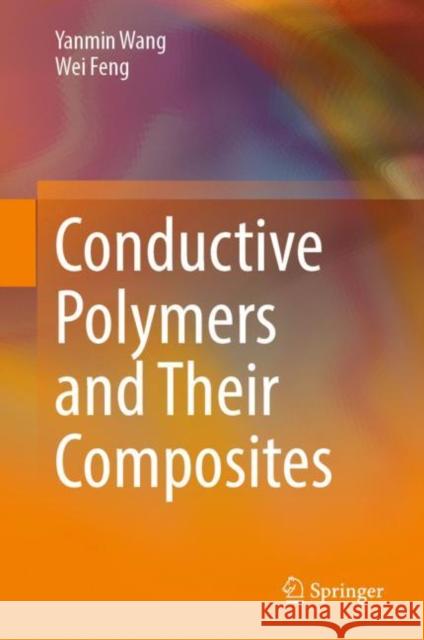Conductive Polymers and Their Composites » książka
Conductive Polymers and Their Composites
ISBN-13: 9789811953620 / Angielski / Twarda / 2022 / 347 str.
Conductive Polymers and Their Composites
ISBN-13: 9789811953620 / Angielski / Twarda / 2022 / 347 str.
(netto: 766,76 VAT: 5%)
Najniższa cena z 30 dni: 693,97
ok. 16-18 dni roboczych.
Darmowa dostawa!
This book provides a comprehensive overview on the recent significant advancements of conductive polymers and their composites in terms of conductive mechanism, fabrication strategies, important properties, and various promising applications. The corresponding knowledge was systematically compiled in the logical order and demonstrated as seven chapters. The special structure, influencing factors of the conductivity, the charge carrier transport model, the wettability and classical categories of the conductive polymers are narrated. Both conventional and novel strategies undertaken to fabricate the conductive polymers are introduced, as provided the overall master of the progress. In comparison with the bulk counterpart, nanostructured conductive polymers with different dimensions such as nanospheres, nano-networks, nanotubes and nanowire arrays are produced through distinct methods, thus presenting unique and distinct performance endowed by the nanometer scale. The combination of conductive polymers with other functional materials results in a number of the composites with improved properties by synergistic effect. The superior performance of conductive polymers and their composites greatly facilitates their development toward various important applications in the advanced and sophisticated fields such as biological utilization, energy storage and sensors. Due to their excellent biocompatibility, conductive polymers and their composites stand out to be useful in the biological field including tissue engineering, drug delivery and artificial muscle.To meet the urgent demand of the energy storage, conductive polymers and their composites play an important role in the devices including supercapacitors, solar cells and fuel cells.Finally, development of conductive polymers and their composites in the modern industry is greatly enhanced by their applications in smart sensors such as conductometric sensors, gravimetric sensors, optical sensors, chemical sensors and biosensors. This book has significant value for researchers, graduate students, and engineers carrying out the fundamental research or industrial production of conductive polymers and their composites.
This book provides a comprehensive overview on the recent significant advancements of conductive polymers and their composites in terms of conductive mechanism, fabrication strategies, important properties, and various promising applications. The corresponding knowledge was systematically compiled in the logical order and demonstrated as seven chapters. The special structure, influencing factors of the conductivity, the charge carrier transport model, the wettability and classical categories of the conductive polymers are narrated. Both conventional and novel strategies undertaken to fabricate the conductive polymers are introduced, as provided the overall master of the progress. In comparison with the bulk counterpart, nanostructured conductive polymers with different dimensions such as nanospheres, nano-networks, nanotubes and nanowire arrays are produced through distinct methods, thus presenting unique and distinct performance endowed by the nanometer scale. The combination of conductive polymers with other functional materials results in a number of the composites with improved properties by synergistic effect. The superior performance of conductive polymers and their composites greatly facilitates their development toward various important applications in the advanced and sophisticated fields such as biological utilization, energy storage and sensors. Due to their excellent biocompatibility, conductive polymers and their composites stand out to be useful in the biological field including tissue engineering, drug delivery and artificial muscle. To meet the urgent demand of the energy storage, conductive polymers and their composites play an important role in the devices including supercapacitors, solar cells and fuel cells. Finally, development of conductive polymers and their composites in the modern industry is greatly enhanced by their applications in smart sensors such as conductometric sensors, gravimetric sensors, optical sensors, chemical sensors and biosensors. This book has significant value for researchers, graduate students, and engineers carrying out the fundamental research or industrial production of conductive polymers and their composites.











